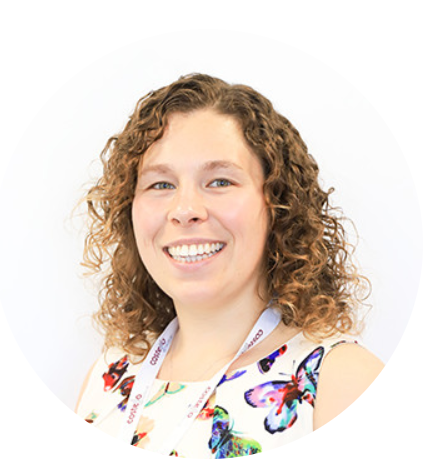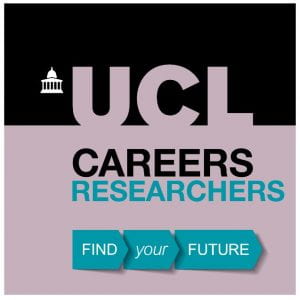Guest Feature: Moving into Medical Writing
By s.duran, on 9 July 2021
Throughout the academic year, we take a deep dive into some key topics and career paths discussed in our events programme. In these posts, we explore what careers in a variety of different industries look like for a researcher, find out about the roles their organisation has to offer and get some key tips on applying. In this summer’s bonus blog series, we’re following up with some of the speakers from our Researchers Professional Careers Beyond Academia Conference. We’ll learn more about their roles, industries, and answer a few questions we weren’t able to get to in the conference.
This week we’ll be looking at medical writing with Emma Phillips, Publication Manager at Costello Medical.
Emma completed her PhD in Neuroscience at King’s College London. She worked as a post-doctoral researcher at University of Cambridge prior to moving into medical writing in 2018.

So, how did you move from your PhD to your current role?
I completed my PhD in Neuroscience at Kings College London in 2016 before doing an 18-month post-doc at the University of Cambridge. However, I quickly realised that an academic career wasn’t for me and, after some help from the university’s career service, I decided medical writing sounded really interesting. I had previously enjoyed writing both my thesis and academic papers, so this seemed like a good fit.
I applied to Costello Medical and started as a Medical Writer in the Publications division in April 2018. I found I really enjoyed the job – the work was interesting and meaningful, closely linked to cutting edge science and used many of the skills I developed in my academic career. In April 2019, I was promoted to Senior Medical Writer and began managing projects alongside continuing to write. In October 2020, I was promoted again to Publication Manager. I now do less writing but manage full client accounts and line manage several members of the team. I also play a strategic role in the projects I work on for clients and internally within Costello.
Who are Costello Medical, and what do you do?
Costello Medical provides scientific support in the analysis, interpretation and communication of clinical and health economic data. We work with pharmaceutical and medical device companies, as well as charities, to help communicate their data to a variety of audiences. We provide a wide range of services, which means we can support clients throughout the lifecycle of their product. I work in the Publications division who specialise in academic publications, including peer-reviewed journal papers and congress work, but have frequently worked on cross-divisional projects.
In my current role, my day-to-day work involves keeping all the projects on my client accounts running smoothly and to time. This includes reviewing work that the Medical Writers and Senior Medical Writers draft, communicating with clients about new and ongoing projects to make sure we are meeting their brief, and working on business development to make sure we have projects lined up for the future. As a member of the Senior Management Team, I also have internal responsibilities, including helping plan who works on which project, line managing members of the Publications division and helping shape what Costello Medical is going to look like in the future.
What are the benefits of working for Costello and in your current role?
Whilst I enjoyed my time in academia, there are benefits to my current role. For example, it is permanent, I am better paid and there is better training for managers. However, these are not the things that really stand out to me as my favourite aspects of the job.
I really enjoy how varied my work is – I am always learning about new disease areas and project types; every day is different. I also love the impact I can have through my work. Outwardly, this is most obvious through the publications we develop – the science we write about has real impact for patients and healthcare systems across the world. However, I also have the privilege of having an impact internally within the company, both through mentoring junior members of staff and watching them grow into excellent Medical Writers, and through having my say in the future of Costello Medical. The company has always been shaped by the interests, opinions and passions of its employees. For example, I am really interested in patient engagement in medical research and my line manager has always supported this. We now have a team of people working to progress patient engagement at Costello Medical and in the projects we work on.
What were the biggest challenges in moving from your PhD to industry?
Except for a short placement working at Lilly during my PhD, I had no experience working in industry. I had no idea how to work in a professional office and was really worried that I would do or say the wrong thing! When I got to Costello Medical, I quickly realised my fears were unfounded – everyone was so friendly and helpful. I was also worried that I would miss being in the lab but, honestly, this never happened.
Coming from academia, you often have very little experience in the client-facing side of the role. I did find this daunting at first – it can be scary to speak up on client calls at the beginning. However, my Project Managers and teams were always there to help me, and I wasn’t left to take client calls by myself until I was much more experienced and felt confident to do so.
What type of career progression is available in Medical Writing at Costello Medical?
At Costello Medical, we are looking for individuals who are collaborative, self-motivated and enthusiastic with a genuine interest in healthcare and an eagerness to learn about new areas of science. No prior medical communications experience is needed for the Medical Writer role. Instead, we look for candidates with excellent written English, exceptional attention to detail and strong analytical skills. Furthermore, we expect candidates to have good organisation skills and the ability to work across multiple projects and teams at the same time. Given that our roles are often entry-level and career progression can be rapid, a desire and passion to learn is essential.
As a PhD student, you can do plenty to prepare for a future career in medical communications. For example, taking every opportunity you can to write. It is especially helpful if you can write for multiple audiences and develop writing styles suited to multiple formats, like publication writing aimed at fellow academics alongside writing documents aimed at the general public. Additionally, we would recommend any teamwork opportunities, which can help to prepare you for working within project teams and collaborating with people from different backgrounds.
Audience Question 1: What’s the application and interview process for medical writing?
We firstly ask candidates to submit their CV, along with a cover letter, via the online application form on our website. After an initial CV review, you will be sent a written assessment to complete, which is a critical appraisal of a trial paper. This allows us to assess your scientific understanding as well as your written communication skills and attention to detail. Successful candidates will be invited to an interview which includes a short presentation based on the written assessment. The interview will then be with two senior members of the team and you will have a chance to also ask them any questions about the role or the company. Finally, you will complete a proofreading task to show us your attention to detail skills.
Audience Question 2: How much of a writing portfolio had you built up when you applied for your position within and outside of academic journal articles?
Most of my writing experience had come from writing academic journal articles – I think I had been an author on seven or eight papers. I had also written and presented several congress abstracts, posters and oral presentations. A published academic record is not needed to apply for a Medical Writer role, but I do feel it helped to prepare me.
Outside of academic writing, I had been involved in several projects that required me to target my communication to other, non-academic audiences, including the 3-Minute Thesis Competition and a variety of open days and public outreach projects.
Audience Question 3: Do you ever experience pressure from clients to word or present the write-up in a certain way and how do you deal with that?
Yes, we are often required to use client-approved wording or phrases in our writing. In fact, a key part of our job is ensuring the publications we write align with client strategy and messaging. We plan publications to make sure they are published to timelines that maximise their impact and build a consistent picture of the benefits (and limitations!) of a treatment. However, everything we write must be supported by data and references. If a client wants us to write something unsupported, we are encouraged to push back on this to ensure our work is of the highest possible quality. Honestly though, this very rarely happens – there are almost always independent clinicians involved who would be uncomfortable with this, and the client will want their publications to get past peer reviewers. There are also wide variety of industry standards that pharmaceutical companies and medical publication professionals must adhere to, which prevent companies communicating incorrect data or putting a ‘spin’ on results.
Thanks to Emma for sharing your experiences! We hope you found this useful and keep an eye out for more of our guest blogs… If this has inspired you to explore a career outside of academia, keep an eye out for our Autumn term events programme.
 Close
Close










